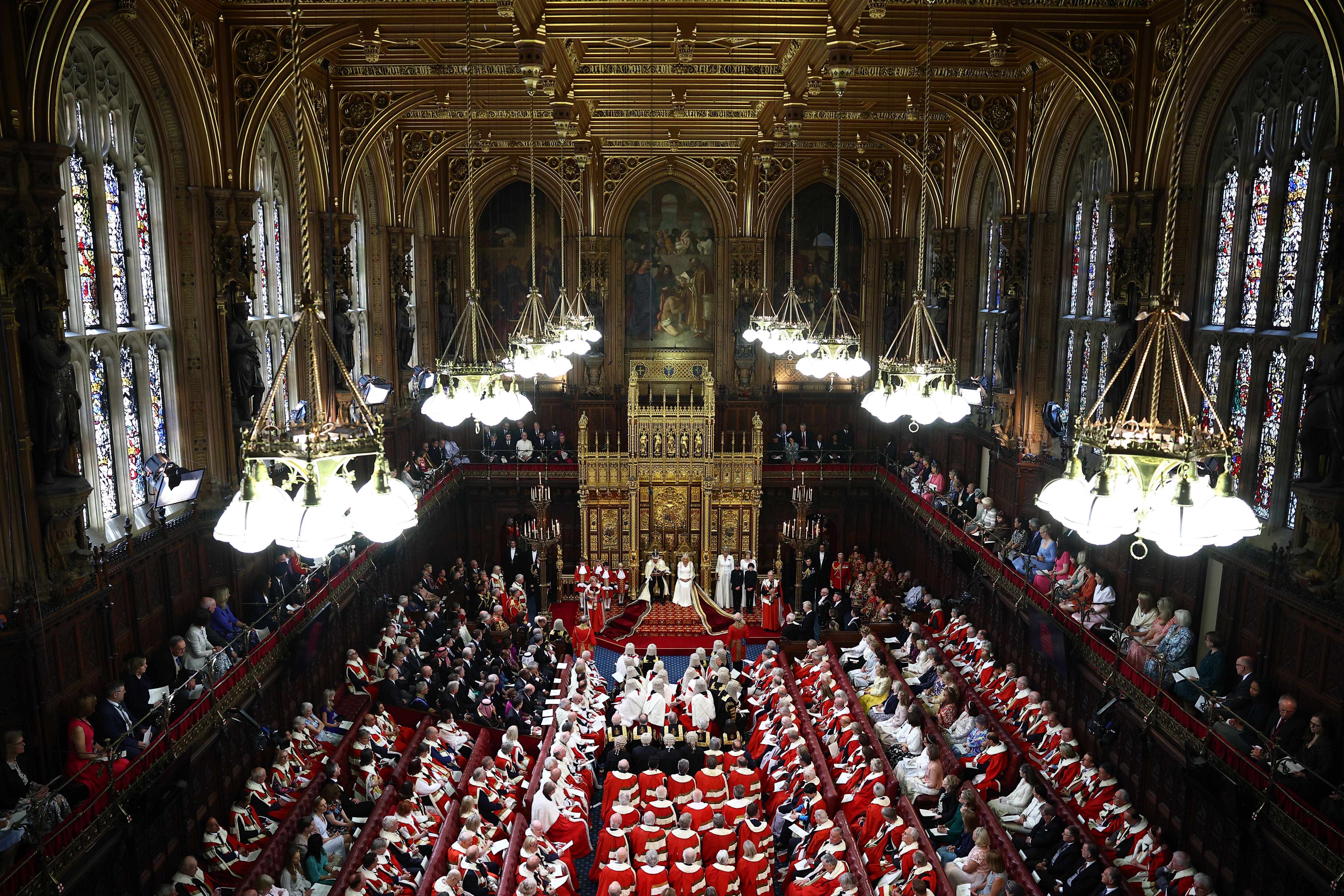Government brings in Bill to remove ‘outdated’ hereditary peers from Lords
The last Labour government removed most hereditary peers from the Lords in 1999, but allowed 92 to remain.

Your support helps us to tell the story
From reproductive rights to climate change to Big Tech, The Independent is on the ground when the story is developing. Whether it's investigating the financials of Elon Musk's pro-Trump PAC or producing our latest documentary, 'The A Word', which shines a light on the American women fighting for reproductive rights, we know how important it is to parse out the facts from the messaging.
At such a critical moment in US history, we need reporters on the ground. Your donation allows us to keep sending journalists to speak to both sides of the story.
The Independent is trusted by Americans across the entire political spectrum. And unlike many other quality news outlets, we choose not to lock Americans out of our reporting and analysis with paywalls. We believe quality journalism should be available to everyone, paid for by those who can afford it.
Your support makes all the difference.The Government will begin the process of removing hereditary peers from the House of Lords on Thursday, as it introduces legislation to reform the upper chamber.
Abolishing the 92 seats reserved for hereditary peers was one of Labour’s manifesto commitments, and is expected to be followed by the imposition of a retirement age of 80 on members of the Lords.
Officials have previously described the continued presence of hereditary peers in the Lords as “outdated and indefensible”, with reform “long overdue and essential”.
But Conservative critics have called the move a “vendetta” and “political vandalism”.
Nick Thomas-Symonds, minister for the constitution, said the legislation was a “landmark reform to our constitution”.
He said: “The hereditary principle in law-making has lasted for too long and is out of step with modern Britain.
“The second chamber plays a vital role in our constitution and people should not be voting on our laws in Parliament by an accident of birth.
“This Bill shows this Government’s commitment to delivering on our manifesto and is an important part of putting politics in the service of working people.”
The last Labour government removed most hereditary peers from the Lords in 1999, but allowed 92 to remain in what was initially intended to be a short-term compromise to get the legislation through.
About half of those still in the chamber are Conservatives, with the rest mainly independent Crossbenchers and a small number of Labour and Liberal Democrat peers.
Current hereditary peers in the House of Lords include Lord Attlee, grandson of the Labour prime minister Clement Attlee; the Duke of Wellington, whose great-great-great-grandfather defeated Napoleon at Waterloo in 1815; and Viscount Stansgate, whose father Tony Benn renounced his peerage to sit in the Commons, where he became a prominent figure on the left of the Labour Party.
The total also includes two peers, the Earl Marshal and Lord Great Chamberlain, whose right to sit and vote in the House of Lords will be removed, however they will retain the constitutional duties they perform on state occasions.
Baroness Angela Smith, the Leader of the House of Lords, said: “While recognising the valuable contributions many hereditary peers have made to Parliament, it is right that this reform is being brought forward now, completing work we began 25 years ago.
“Removing the hereditary principle from the Lords will deliver on a specific manifesto commitment. It will also help deliver on our commitment to reduce the size of the second chamber, as we bring forward further reforms.”
Labour remains formally committed to abolishing the House of Lords and replacing it with an elected chamber, but the party’s 2024 manifesto promised only to “consult on proposals”.